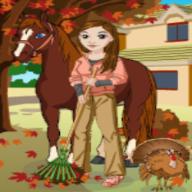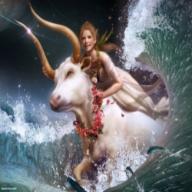過去式,he是否用was?
eg.He was angry.
He wasn't angry.
現在式,he是否用is?
eg.He is angry.
錦does點用?
eg.He does angry?
過去式,現在式
2007-02-10 3:57 am
回答 (8)
2007-02-10 4:03 am
✔ 最佳答案
你的eg全中!!!!!!!1
參考: 自創
2007-02-11 7:48 am
過去式,he是用was
eg.He was angry.
He wasn't angry.
現在式,he是用is
eg.He is angry.
至於does...........
does是用在he, she, it
例如:He is does his homework tomorrow.
eg.He was angry.
He wasn't angry.
現在式,he是用is
eg.He is angry.
至於does...........
does是用在he, she, it
例如:He is does his homework tomorrow.
2007-02-10 5:06 am
You are absolutely right!!! ~CONGRATS~
Some more hints for you:
Present Tense:
HE, SHE, IT ----------------> is or does (+s)
eg1. He IS angry.
Sam IS tall.
eg2. Mary is happy.
Mary swimS (original verb swim) everyday. (It is a daily or regularly habit for Mary so we use present tense for the Verb "swim" by adding "S" at the end of the verb.)
Mary goeS (original verb: go) to school everyday.
Mary loveS (original verb: love) her mother.
eg3. The baby (it) is lovely. (In general, we use it when talking about babies, animals and non-living things.)
The dog is big.
The classroom is small.
Present tense:
I, YOU, THEY, WE ---------------> am, are or do
eg1. I AM hungry.
I understand.
eg2. You ARE pretty.
You run very fast. (Using I, we, you, they in present tense, they VERB do NOT add an "S" to it, and you can also ommit "do" in the sentence. Use the original form of the verb.)
eg3. They ARE noisy.
They do homework everyday after class.
eg4. We ARE quite in the English class.
We love dogs.
Past tense:
HE, SHE, IT ----------------> WAS, DID (+ed)
eg1. He WAS angry.
Sam WAS thirsty.
John finishED (original verb: finish) the English test yesterday. (**In most of the times, we only have to add "ed" at the end of the Verb to represent past tense, but some verbs have their special forms such as verbs like, "know" (present) = "knew" (past), "understand" ="understood", "eat" = "ate".)
eg2. Mary was sad.
She ate (original verb: eat) a hamburger yesterday afternoon.
eg3. It was scary.
The baby did not eat anything yesterday.
I, YOU, WE, THEY ----------------> WAS, WERE, DID (+ed)
eg1. I WAS happy.
eg2. You WERE happy.
You did not do homework yesterday.
eg3. We WERE young twenty years ago.
We went (original verb:go) to Lamma Island last week.
eg4. They WERE noisy.
They SANG (original verb: sing) karaoke on Saturday.
I hope it helps you with your English but not confusing you!
Feel free to ask questions!!!
Study hard and Good luck in school!
Some more hints for you:
Present Tense:
HE, SHE, IT ----------------> is or does (+s)
eg1. He IS angry.
Sam IS tall.
eg2. Mary is happy.
Mary swimS (original verb swim) everyday. (It is a daily or regularly habit for Mary so we use present tense for the Verb "swim" by adding "S" at the end of the verb.)
Mary goeS (original verb: go) to school everyday.
Mary loveS (original verb: love) her mother.
eg3. The baby (it) is lovely. (In general, we use it when talking about babies, animals and non-living things.)
The dog is big.
The classroom is small.
Present tense:
I, YOU, THEY, WE ---------------> am, are or do
eg1. I AM hungry.
I understand.
eg2. You ARE pretty.
You run very fast. (Using I, we, you, they in present tense, they VERB do NOT add an "S" to it, and you can also ommit "do" in the sentence. Use the original form of the verb.)
eg3. They ARE noisy.
They do homework everyday after class.
eg4. We ARE quite in the English class.
We love dogs.
Past tense:
HE, SHE, IT ----------------> WAS, DID (+ed)
eg1. He WAS angry.
Sam WAS thirsty.
John finishED (original verb: finish) the English test yesterday. (**In most of the times, we only have to add "ed" at the end of the Verb to represent past tense, but some verbs have their special forms such as verbs like, "know" (present) = "knew" (past), "understand" ="understood", "eat" = "ate".)
eg2. Mary was sad.
She ate (original verb: eat) a hamburger yesterday afternoon.
eg3. It was scary.
The baby did not eat anything yesterday.
I, YOU, WE, THEY ----------------> WAS, WERE, DID (+ed)
eg1. I WAS happy.
eg2. You WERE happy.
You did not do homework yesterday.
eg3. We WERE young twenty years ago.
We went (original verb:go) to Lamma Island last week.
eg4. They WERE noisy.
They SANG (original verb: sing) karaoke on Saturday.
I hope it helps you with your English but not confusing you!
Feel free to ask questions!!!
Study hard and Good luck in school!
2007-02-10 4:21 am
He was angry and He is angry 兩句都岩
Angry 是形容詞,所以就要用be(is)呢個verb,去令句子變得合理
至於Does係用於現在式的問句(Third Person)....
而用法係用於一句句子入面,除be(is)之外的 "其他verb"
如︰Does he go to the restaurant? 他上酒樓嗎? Yes, he goes to the restaurant.
Does the kitten eat the fish? 小貓兒吃魚嗎? Yes, the kitten / it eats the fish.
Does the girl dance? 女孩們跳舞嗎? No, she doesn't (dance).
其實你可以看到,問句中的go 和 eat 都不用加"s"
那是因為"s" 已加到問句中的"Does"那裡去了
但回答時,需要在verb加"s"
先講住咁多先啦!
Angry 是形容詞,所以就要用be(is)呢個verb,去令句子變得合理
至於Does係用於現在式的問句(Third Person)....
而用法係用於一句句子入面,除be(is)之外的 "其他verb"
如︰Does he go to the restaurant? 他上酒樓嗎? Yes, he goes to the restaurant.
Does the kitten eat the fish? 小貓兒吃魚嗎? Yes, the kitten / it eats the fish.
Does the girl dance? 女孩們跳舞嗎? No, she doesn't (dance).
其實你可以看到,問句中的go 和 eat 都不用加"s"
那是因為"s" 已加到問句中的"Does"那裡去了
但回答時,需要在verb加"s"
先講住咁多先啦!
2007-02-10 4:13 am
對!過去式,he是用was
eg.He was angry.
He wasn't angry.
現在式,he是用is
eg.He is angry.
He isn't angry.
does 唔會錦用.
does 用在verb 後面,不是在adjective 後面.
eg.He does his homework
He doesn't do his homework
eg.He was angry.
He wasn't angry.
現在式,he是用is
eg.He is angry.
He isn't angry.
does 唔會錦用.
does 用在verb 後面,不是在adjective 後面.
eg.He does his homework
He doesn't do his homework
參考: ME
2007-02-10 4:05 am
你的答案全中!!!!
2007-02-10 4:03 am
過去式,he是用was!
eg.He was angry.
He wasn't angry.
現在式,he是用is!
eg.He is angry.
Does:
Does he angry?
2007-02-09 20:05:42 補充:
過去式Does:Did he angry?
eg.He was angry.
He wasn't angry.
現在式,he是用is!
eg.He is angry.
Does:
Does he angry?
2007-02-09 20:05:42 補充:
過去式Does:Did he angry?
參考: ME
2007-02-10 4:03 am
你估計的答案完全正確。現在式he是用is,過去式he是用was,does就係He does angry。
收錄日期: 2021-04-12 18:00:25
原文連結 [永久失效]:
https://hk.answers.yahoo.com/question/index?qid=20070209000051KK03155





